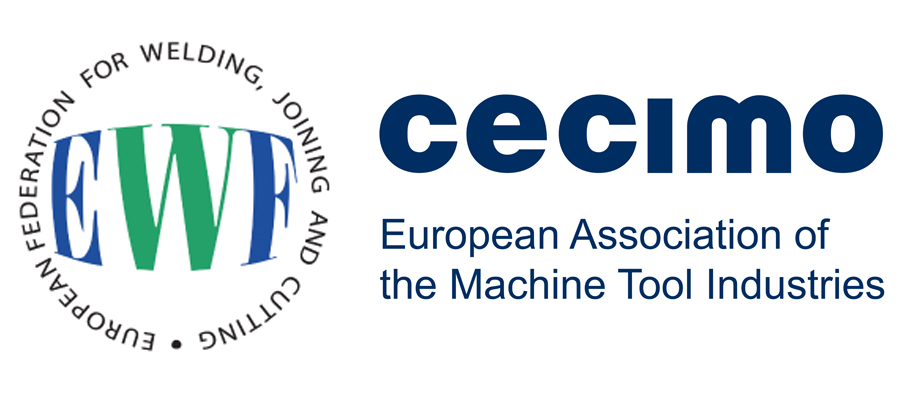This partnership will focus on the development of areas of mutual interest and close collaboration on all relevant EU projects
Additive manufacturing lies at the leading edge of the transformation that Industry 4.0 is unleashing throughout the world, with close cooperation between all relevant stakeholders being a key element to drive its broad adoption, as it encompasses many relevant technologies, like 3D Printing, Rapid Prototyping (RP), Direct Digital Manufacturing (DDM), layered manufacturing and additive fabrication. Two of the primary drivers for its adoption are the machines that perform the increasingly complex additive manufacturing activities, and the new professional qualifications to operate them. This is why two leading organizations on the field, EWF, who is steering the course on the required professional qualifications, and CECIMO, representing the machine tools industries globally and at the EU level, have joined efforts to drive and accelerate this change, one that will impact all aspects of our lives, from industrial applications to advanced healthcare solutions, as Additive manufacturing is coming of age.

CECIMO and EWF will henceforth work together to support Europe’s industry through this profound and impactful change, by finding mutually relevant opportunities and exchanging information on activities such as qualification and advocacy in Additive Manufacturing or on AM-specific EU project proposals, as well as creating joint working groups that will develop relevant activities on areas of mutual interest.
Additive manufacturing is entering the mainstream
Additive Manufacturing describes the technologies that create 3D objects by using the most diverse type of material, adding them layer-upon-layer. The materials used could vary, and AM application is limitless. Early use of AM in the form of Rapid Prototyping focused on preproduction visualisation models. More recently, AM is being used to fabricate end-use products in aircraft, dental restorations, medical implants, automobiles, and even fashion products.
The connection between all these technologies is the need to use computers, 3D modeling software (Computer Aided Design or CAD), machine equipment and layering material, that will be used by the AM equipment, once a CAD sketch is produced, to read in data from the CAD file and generate successive layers of liquid, powder, sheet material or other, to create a 3D product.
CECIMO is the association conveying the concerns of the AM industry to the EU authorities. Representing key companies in the AM ecosystem, it engages with policy actors for the creation of an enabling policy, and regulatory and business framework for the uptake of additive technologies in Europe. This includes initiatives such as developing specific AM standards within the remit of EU regulations, advising the European institutions on the AM priority research areas for the next EU budgetary programme, and producing curricula to boost AM in education. CECIMO is also partners in several EU projects, coordinating one on the evolution of skills in the machine tool sector as a result of AM, and participating in three others as task leader. Furthermore, CECIMO organises high-level conferences in the European Parliament with leading AM businesses and European policy-makers, and hosts the meetings of its own industry-driven AM Working Group, gathering experts from across Europe.
On its turn, EWF contributes to the VET in the welding sector over 31 member countries across Europe, managing a harmonised system for qualification and certification of personnel working in the welding sector, as well as certification of companies and, as such, is developing today the qualifications required for the next batch of professionals entering the workforce while at the same time providing the basis for getting today’s workers ready for the challenges posed by new technologies, such as is the case of Additive Manufacturing.
The long-term goal of this partnership is to ensure that business and industrial advances are matched, not hindered, by the qualifications of professionals to operate them as well as by supporting regulatory and policy conditions.

